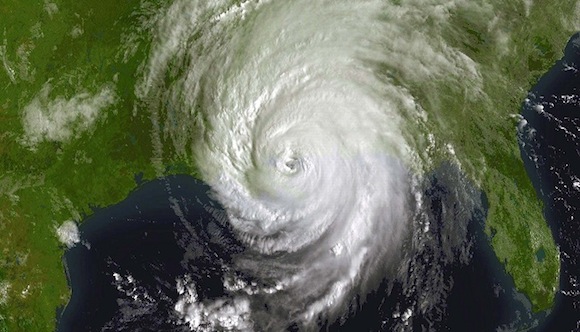
It’s surprisingly difficult to measure how a state is “doing.” Politicians do a lot of bragging about what they’ve accomplished but tend to be imprecise when it comes to real measurements.
You could look at the mean or median personal income for a family of four, for instance. Or state domestic product. But each of these metrics is subject to interpretation and skewing.
I suggest we look at population growth. The U.S. Census data is reasonably accurate and it’s updated every 10 years, so big-picture trends can be spotted reliably. Think of it as a kind of election return. People vote with their feet. They leave a state with no jobs and head to a state with “good” jobs—or any job at all.

States can lose population as a result of some traumatic event—oil spill, hurricane. So short-term numbers are not that meaningful. Long-term, however, they mean a lot.
They tell you whether a state is magnetic, a place where people see opportunity or at least a fair shake, or whether they see corruption, a poor economy, an unhealthy environment, bad schools and the like.
How does Louisiana do on the population scale?
Let’s look at the numbers from 1970 to 2010. That takes us back even before the oil crash of the mid-1980s. And let’s compare them with our neighboring States: Texas, Oklahoma, Arkansas, and Mississippi. Just for good measure, let’s add Alabama—because it’s similar to Louisiana and Mississippi. Let’s also throw in both Carolinas, because we compete with them for new plants and industries:
Here’s how these states rank in terms of population growth since 1970:
1. TEXAS grew from 11.2 to 25.1 million—124 percent.
2. NORTH CAROLINA grew from 5.1 to 9.5 million—86 percent.
3. SOUTH CAROLINA grew from 2.5 to 4.6 million—84 percent.
4. ARKANSAS grew from 1.9 to 2.9 million—53 percent.
5. OKLAHOMA grew from 2.6 to 3.75 million—44 percent.
6. ALABAMA grew from 3.45 to 4.8 million—39 percent.
7. MISSISSIPPI grew from 2.2 to 2.97 million—35 percent.
And dead last?
8. LOUISIANA, which grew from 3.65 to 4.5 million, a paltry 23 percent.
Shown these statistics, some people are quick to blame the oil collapse of 30-years ago. (But then why didn’t it impact Texas just as badly? Was it because they had protected their major universities with trusts funded with oil and gas revenues and could better weather the storm?)
All right then, what about Katrina? That might be a good rebuttal, I thought, so I compared the states’ growth without Katrina, cutting off at the 2000 census, five years before the disaster.
Guess what? Louisiana ranks dead last again. Here are population increases through 2000:
1. TEXAS: 86 percent
2. SOUTH CAROLINA: 60 percent
3. NORTH CAROLINA: 57 percent
4. ARKANSAS: 42 percent
5. OKLAHOMA: 33 percent
6. ALABAMA: 28 percent
7. MISSISSIPPI: 27 percent
8. LOUISIANA: 23 percent
In other words, Katrina hurt, but Louisiana was already hurting.
I picked seven states to compare but could have added Tennessee and/or Virginia and/or Florida—and Louisiana still would have ranked dead last.
You want to measure the power of population another way? Look at the size of Louisiana’s Congressional delegation, a number determined in part by population growth. Each state has one delegate to the U.S. House of Representatives, with others added (or subtracted) when that state grows (or shrinks) faster than or proportional to other states.
In 1970, Louisiana sent eight delegates to the House of Representatives. Now we send six, a 25 percent cut in our Washington power because we cannot sustain growth as well as our competition – the other states.
Is there a way to turn this dismal situation around? Sure there is. One word: education. Governor Jindal is right to have put a priority on that. But let’s go all the way. Because there’s more to it than rethinking elementary and secondary education, more to it than vouchers and charter schools.
Tax and pension reform—which the governor also is working on—will have a direct impact on education, given the way teachers dominate the public payroll and schools dominate our public budgets.
But there’s a final piece of the education puzzle, an unexpected one. Chalk and blackboards? Computers and ink cartridges? No: It’s natural gas.
The state’s most valuable natural resource gives us a second chance to correct one of our biggest shortcomings as a state: the absence of adequately funded trusts dedicated exclusively to higher education.
Locking down a sufficient revenue stream from gas extraction would make it possible to put our state colleges and universities on a firmer footing. It would end their vulnerability to games of political football. It would provide an alternative to gutting their budgets every time the economy hiccups.
As Texas —and indeed many of the states we trail in population growth—clearly demonstrates, higher education is a linchpin in building a more dynamic state. Great universities attract business investment. They retain and sustain an educated populace able to step into higher-paying jobs. Dedicated trusts are crucial to the well-being of public universities.
I’m not saying we should follow Governor Jindal blindly, but I am suggesting we can and should help him reform and build a stronger Louisiana. It’s a great place, but we’re losing ground in one of the most telling measures of a state’s vitality: population growth.
Chairman emeritus and founder of Business First Bank and a partner in RRM-Equity Bank, Buddy Roemer was a four-term congressman and then governor of Louisiana from 1988 to 1992.

